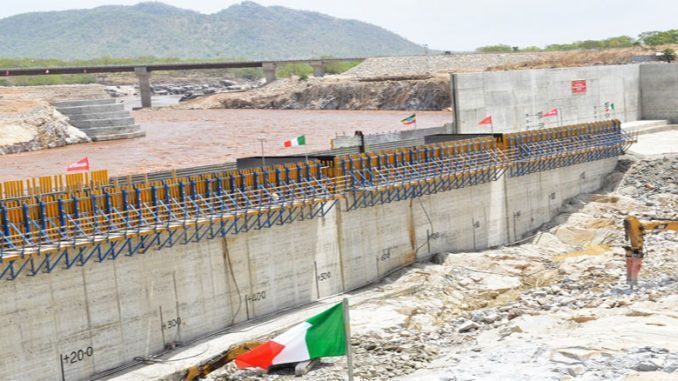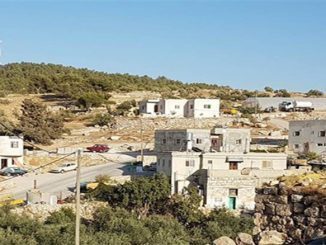
Technical talks between Egypt, Sudan, and Ethiopia over a disputed dam Ethiopia is building on the Nile river failed to make a breakthrough, Egypt’s foreign minister said on Monday, amid pressure for a deal before the project opens this year.
Egypt and Ethiopia are at loggerheads over the construction of the Grand Renaissance Dam, a $4 billion-hydroelectric project that Cairo fears will reduce waters that run to its fields and reservoirs from Ethiopia’s highlands and via Sudan.
Addis Ababa hopes the dam will make it a hub for the electricity-hungry region and denies it will undermine Egypt’s access to water.
Egyptian Foreign Minister Sameh Shoukry said that the latest meeting held in Addis Ababa between Egypt, Ethiopia, and Sudan to discuss the Grand Ethiopian Renaissance Dam (GERD) were unsuccessful due Ethiopia and Sudan’s refusal to share a report on the study conducted to determine the impact of the dam on downstream countries, according to al-Ahram(Egyptian state-owned newspaper)
“I have spoken to the minister of irrigation, who attended this meeting, and what has reached me is that the obstruction that has bogged down this path for more than a year has not been overcome,” Shoukry added.
He said both Ethiopia and Sudan continued to have reservations about a technical report by a French firm commissioned to assess the dam’s environmental and economic impact.
Shoukry said that any solution to the GERD deadlock should be reached on a “scientific” basis that “should leave no room for political interpretation.”
Ties between Egypt and Sudan were strained when Khartoum backed the dam because of its need for electricity.
The three African neighbors are set to meet on May 15 for further talks, Shoukry said, adding Egypt had initially proposed several earlier dates for negotiations, but they were turned down by the two other countries.
Earlier this month, talks in Khartoum between Egypt, Ethiopia, and Sudan also failed to reach an agreement, but were described by Sudan’s foreign minister as “constructive”.
The multi-billion dollar dam is being constructed on the Blue Nile, about 20 kilometers from the Sudanese border, and has a capacity of 74 billion cubic meters, and is expected to generate electrical power of up to 6,000 megawatts.
Egypt fears Ethiopia’s dam could reduce its Nile water share. Ethiopia has said it needs the dam for its development and is seeking to assure Cairo that it will not significantly harm it.
The sticking point appears to be how quickly the reservoir behind the dam will be filled and if that will impact Egypt’s water share.
Egypt has traditionally received the lion’s share of the Nile’s waters under agreements seen by other Nile basin nations as unfair. Former Egyptian presidents have warned that any attempt to build dams along the Nile will be met with military action.
Last month, Egypt’s Parliament of Egypt passed legislation banning cultivation of crops that require high volumes of water, as rice, bananas and other crops, with violators facing prison time and fines of up to $3,000



